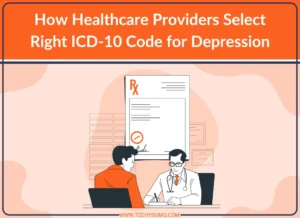In our fast-paced, achievement-oriented society, we often treat our bodies like machines that should run perfectly without maintenance. We schedule oil changes for our cars more regularly than check-ups for ourselves, invest more time researching the latest smartphone than understanding our own health markers, and prioritize productivity over the very foundation that makes productivity possible. The truth is, sustainable success in any area of life begins with robust physical and mental health that requires intentional cultivation and professional partnership.
Table of Contents
The Power of Preventive Healthcare
Preventive healthcare represents one of the most powerful investments you can make in your future self. Unlike reactive medicine that addresses problems after they develop, preventive care identifies risk factors early and implements strategies to avoid serious health issues altogether. This approach not only improves quality of life but also prevents the emotional, physical, and financial costs associated with chronic diseases.
Regular health screenings can detect conditions like high blood pressure, diabetes, and high cholesterol years before symptoms appear. During this early detection window, lifestyle modifications and minimal interventions can often prevent progression to more serious conditions requiring extensive treatment. The American Heart Association estimates that 80% of premature heart disease and stroke cases are preventable through lifestyle choices and early medical intervention.
Blood work provides valuable insights into your body’s internal functioning, revealing trends and markers that guide personalized health strategies. Regular monitoring of cholesterol levels, blood sugar, vitamin D, and inflammatory markers allows for targeted interventions before problems become symptomatic.
Building a Partnership with Healthcare Professionals
The relationship with your primary care physician forms the cornerstone of effective health management. This partnership goes far beyond treating acute illnesses and extends to comprehensive wellness planning, risk assessment, and coordinated care across specialties when needed. A strong doctor-patient relationship enables personalized healthcare that accounts for your unique genetic background, lifestyle factors, and health goals.
Also Read
Quality primary care providers take time to understand your complete health picture, including family history, stress levels, sleep patterns, nutrition habits, and exercise routines. This comprehensive approach allows for individualized recommendations that fit your specific circumstances and preferences rather than generic advice that may not apply to your situation.
Modern primary care practices often embrace technology and innovative approaches to make healthcare more accessible and effective. Many providers now offer telemedicine consultations, online patient portals for easy communication, and extended hours to accommodate busy schedules. Practices like Premier Primary Care represent the evolution toward more patient-centered healthcare that prioritizes convenience and comprehensive wellness planning.
Nutrition as Medicine

Food serves as either medicine or poison in your body, influencing inflammation levels, energy production, hormone balance, and disease risk. Understanding nutrition’s profound impact on health empowers you to make choices that support optimal functioning rather than simply satisfying hunger or cravings.
Anti-inflammatory foods like fatty fish, leafy greens, berries, and nuts can reduce the risk of chronic diseases while supporting cognitive function and energy levels. Conversely, highly processed foods, excessive sugar, and trans fats promote inflammation and contribute to conditions like diabetes, heart disease, and arthritis.
Meal planning and preparation represent practical skills that translate directly into better health outcomes. Spending time on Sunday preparing healthy meals for the week removes the decision-making burden during busy weekdays when convenient but unhealthy options might otherwise prevail.
Hydration affects every system in your body, from cognitive performance to joint health. Many people exist in a state of chronic mild dehydration without recognizing how it impacts their energy, mood, and physical performance.
The Exercise Prescription
Physical activity functions as a powerful medicine that addresses multiple health concerns simultaneously. Regular exercise reduces the risk of heart disease, diabetes, osteoporosis, depression, and cognitive decline while improving sleep quality, energy levels, and overall life satisfaction.
You don’t need to become a marathon runner or spend hours in the gym to receive significant health benefits. The CDC recommends 150 minutes of moderate-intensity exercise per week, which can be achieved through brisk walking, swimming, cycling, or dancing. Strength training twice per week helps maintain muscle mass and bone density, which is particularly important as we age.
Creating Your Personal Health Vision
Sustainable health improvements require a clear vision of the person you want to become and the life you want to live. This vision should encompass not just physical health but also mental wellbeing, energy levels, and functional capacity for the activities you value most.
Start by identifying your health priorities based on your current status, family history, and personal goals. Then create systems and partnerships that support consistent progress toward optimal wellness throughout all seasons of life.






